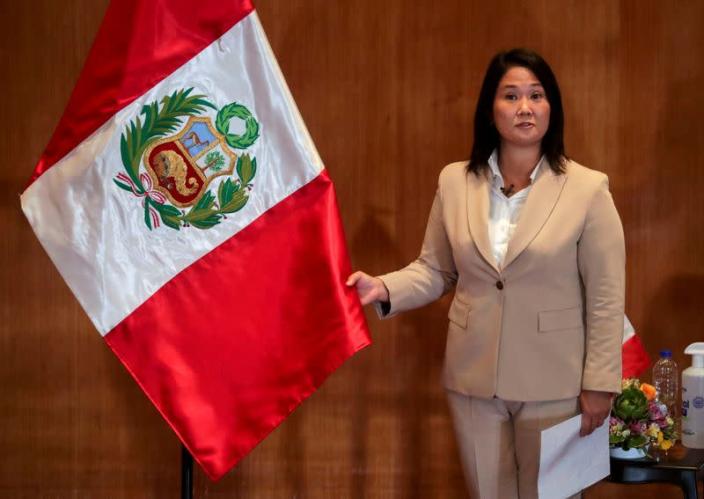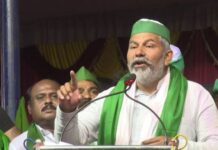On 7 December 2022, Pedro Castillo, former President of Peru, was impeached after attempting to dissolve the Peruvian Congress.
Castillo comes from one of the poorest regions of Peru. His family was very poor. As a child, he had to earn money with farm work while continuing his studies. He became a primary school teacher and came into political prominence as part of the teacher’s union. He attempted to enter politics as early as 2002. He said that he was motivated by the poor conditions of the students of the schools and wanted to work for change.
In 2017, the teachers of Peru went on strike to increase support for education. Castillo rose to prominence as a leader. Many left political parties began to support him. He ran for President in 2021.
Castillo’s rise was meteoric. Without any political position, he became the first left President of Peru. He defeated the right-wing Keiko Fujimori, daughter of former dictator Alberto Fujimori for the Presidential run. The Legislature was hung, with no party winning a majority. However, Castillo’s Free Peru party was the largest party with 37 of 130 seats. Fujimori’s Popular Force was the next largest party with 24 seats. In total, most of the seats were held by Right-wing candidates.

Plot to end Castillo
Almost immediately, Castillo was faced with the COVID pandemic. Many sectors of the economy were already suffering. In the midst of the crisis, members of Fujimori’s Popular Force were already plotting to depose him. Only four months into his presidency, in November 2021, there was already one attempt to impeach him. The right-wing members of Congress made the claim that Castillo was “morally unfit” for office, alleging that he was a corrupt leader. In tandem with the impeachment attempt, big businesses funded strikes and protests. There was also a media smear campaign against Castillo declaring him to be a corrupt communist leader.
In February 2022, supporters of Fujimori attempted another impeachment attempt on the same grounds of moral unfitness. The impeachment could not muster the required two-thirds majority to impeach Castillo, but the smear campaign led to mass protests.
In March and April 2022, the Union of Multimodal Transport Guilds of Peru. Collaborated with big business owners and Fujimori supporters to organize a massive strike. They demanded Castillo step down and insisted that his corrupt government had caused rising fuel prices and economic inflation.
In June 2022, in an effort to appease right-wing factions in the government, Castillo left the Free Peru Party to lead as an independent. This backfired, as it only intensified the campaign against him.
By December 2022, Castillo was looking forward to a third impeachment attempt. He dissolved the Congress in anticipation of impeachment. He did not have any legal grounds to dissolve Congress, so his attempt failed.

The “Left” Castillo
Castillo comes from a working-class background. He was propelled to leadership very fast with very little political experience. Castillo is a staunch Catholic and has been conservative on many issues, particularly regarding sexuality. He campaigned on a position of nationalization and changing the Fujimori Constitution. He promised to increase spending on education and healthcare.
As President, he tried to work across the political spectrum. He has distanced himself from communists and other left groups. Popular Force politicians were hostile from the beginning. While in power, he was not able to move on any issue. The hostility in Congress and the COVID pandemic stopped him before he could even begin.
This has made him vulnerable on multiple sides.
First, the Peruvian government is governed by a Constitution that was put into place to promote neo-liberal policies. It allows Congress to impeach a President on grounds as flimsy as moral unfitness. Most countries have two houses of Parliament, but Peru has only one. This allows the process to be speedy and has been done many times. This makes movements for change ineffective. Peru has not been able to see a President completely to term without supporting extremely conservative and neo-liberal policies.
Second, Peru did not have any international support. When Latin American countries swung to the left historically, they had to rely on each other. Castillo is an outsider and did not make those international inroads while he was campaigning. Since his removal, many Latin American countries, like Bolivia and Mexico, have offered him support, but it has not been able to help him through his Presidency.
Third, as an outsider in politics, Castillo had to face an elite class. He alienated the leftists in power by resigning from the Free Peru Party, and would never be able to work with the right-wing politicians. He did not have a mass support base to rely on. Within his party, his own Vice President turned her back on him. Many Peruvians have expressed discontent with the removal, but this has only resulted in protests. The protests do not look like they would lead to his returning.
Fourth, the allegations of corruption and nepotism are not without merit. Many left-wing leaders in Latin America have been taken down through allegations of corruption. These allegations work through the politicians and the judiciary and remove agency from the people. As we can see, in the case of Castillo, these allegations can be launched multiple times and can work in tandem with a smear campaign. Any amount of corruption and corruption charges can be the most effective way for right-wing politicians to take down a left-wing government. Castillo has either accepted or rejected help from the business elites many times, and as a left-wing politician, he was very vulnerable.
Fifth, Castillo’s background from a poor, mostly indigenous portion of Peru, made him a target of an extremely racist and classist hate campaign.
Aftermath
Since he was deposed, he was succeeded by his Vice President, Dina Boluarte. Boluarte has completely disowned him and has promised early elections. The combined hate campaign and scandal will work in favour of the Popular Force in the elections next year. A 30 day national emergency has been declared in light of protests against the imprisonment of Castillo.


























